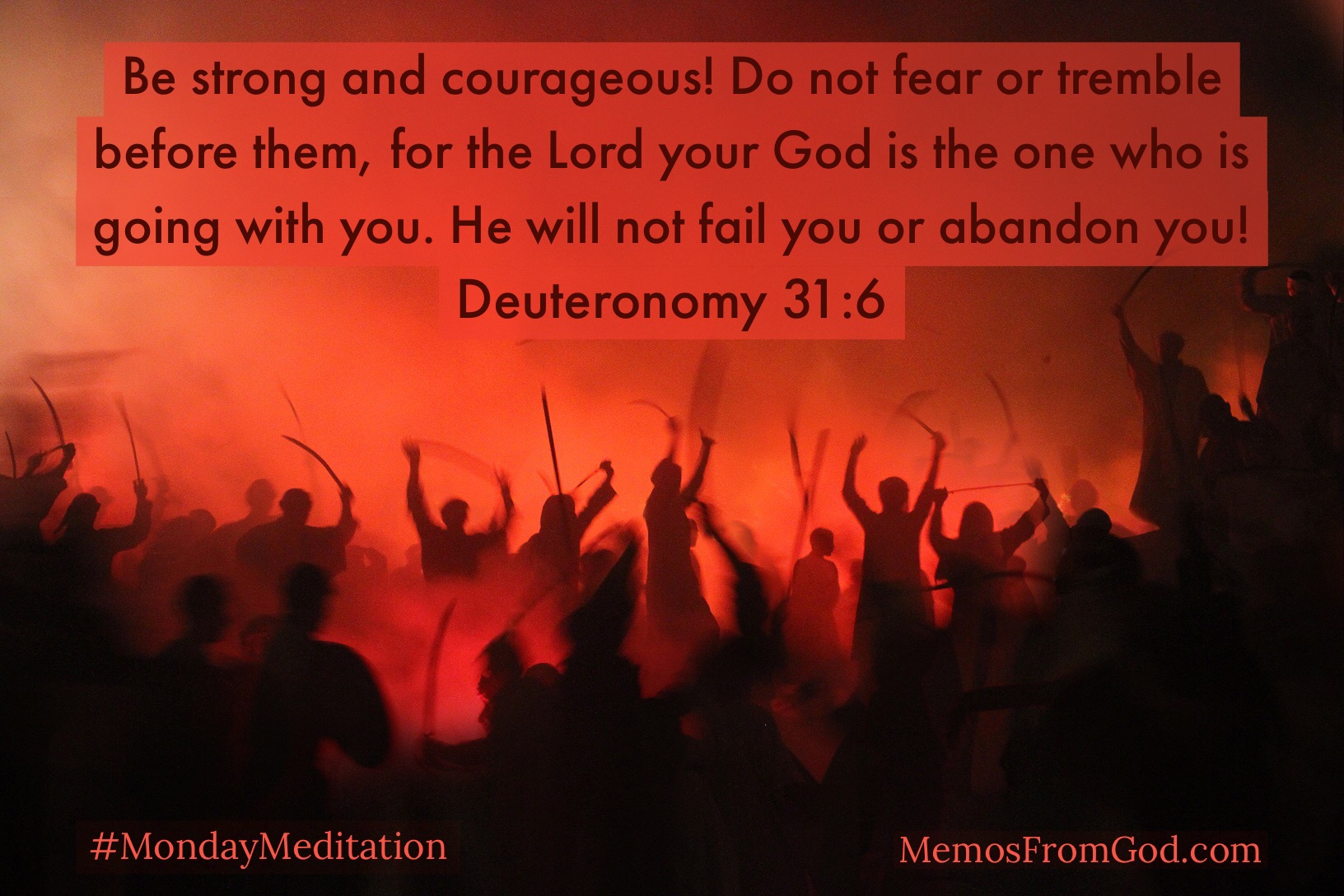
Category: Peace
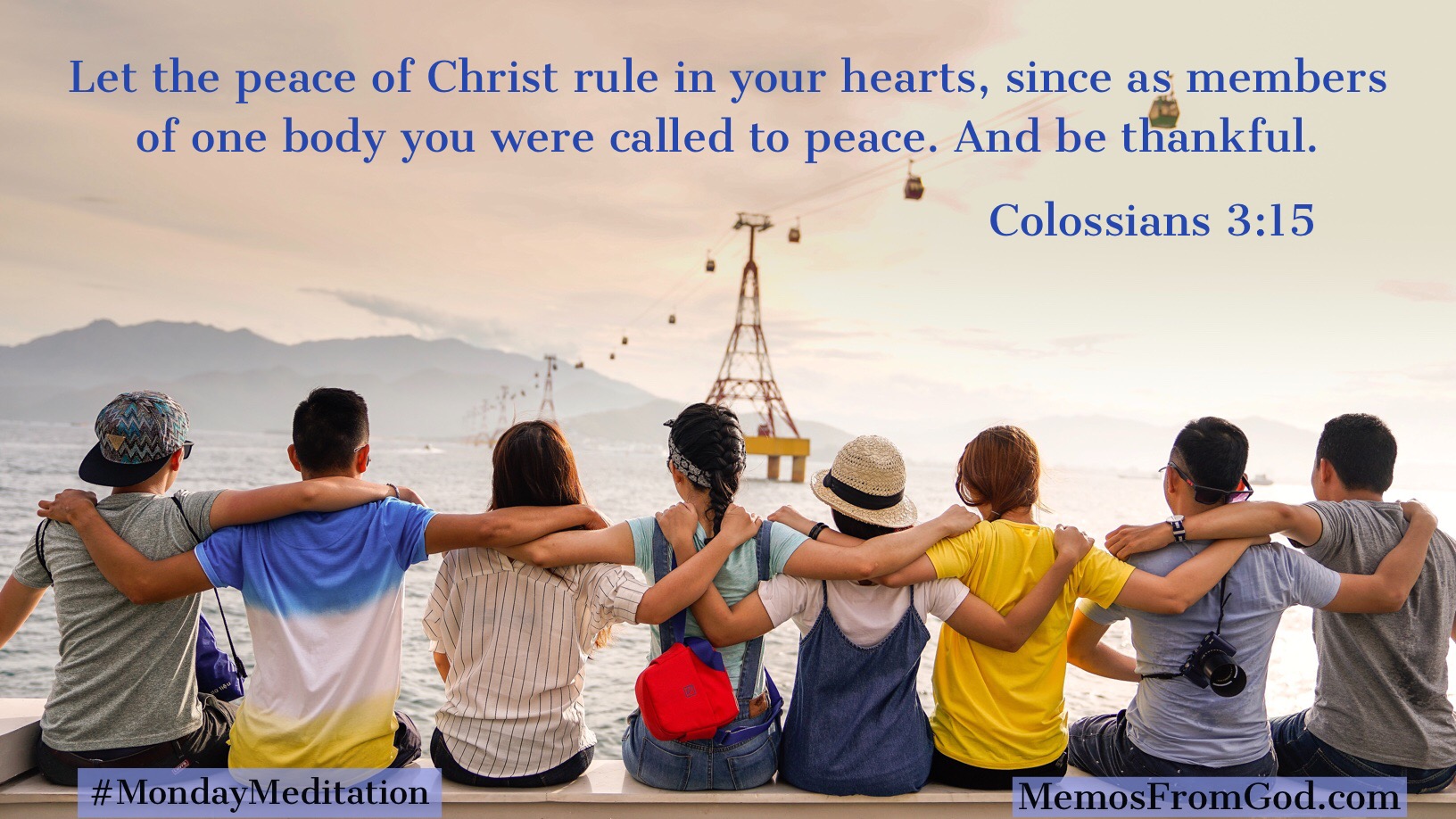

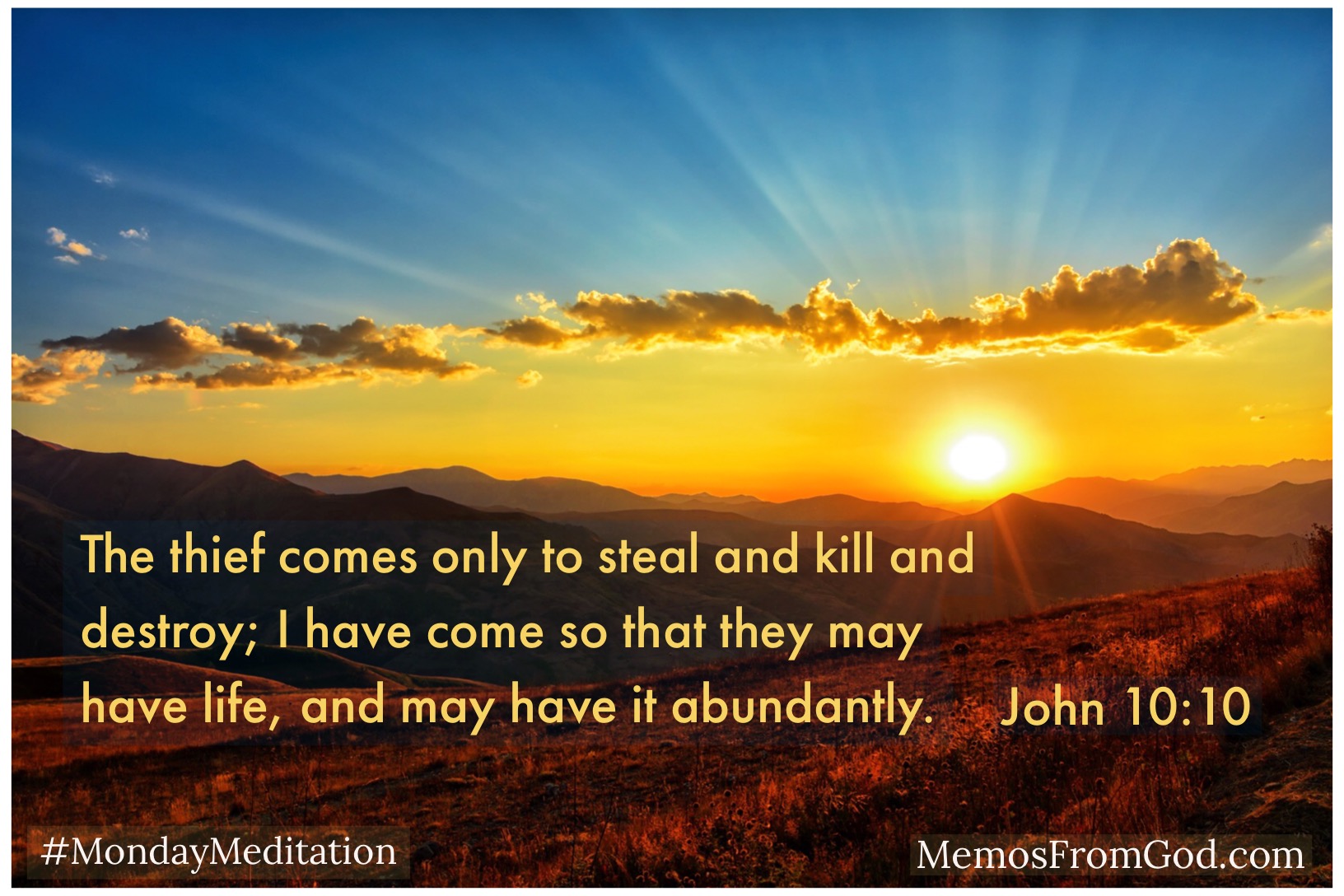
John 16:33 Tiananmen Leader’s Divine Cause
Today's post was written by Rusty Wright.
---------
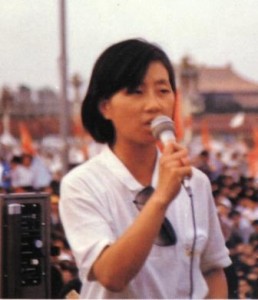 Chinese student Chai Ling helped lead the massive 1989 demonstrations in Tiananmen Square that drew the world’s praise and her government’s wrath. Twice nominated for a Nobel Peace Prize, today this Harvard MBA is a successful businesswoman who still risks persecution to bring reform to China. Her current activities might surprise you.
Chinese student Chai Ling helped lead the massive 1989 demonstrations in Tiananmen Square that drew the world’s praise and her government’s wrath. Twice nominated for a Nobel Peace Prize, today this Harvard MBA is a successful businesswoman who still risks persecution to bring reform to China. Her current activities might surprise you.
For weeks during spring 1989, global attention focused on massive protests in Beijing’s Tiananmen Square. Chai Ling says the protests were “for a better, freer, and more loving China. …We wanted to know the truth about our country, our lives, and our beliefs.”
Love, Hope, Dreams of Freedom
She recalls that “the whole country, and the whole world [were] touched by that energy of love, hope and…glorious dreams that we could be free. Free from hatred…violence…separation… fear.”
“Even the thieves in Beijing called a strike,” she notes, “and stopped stealing to support the movement.”
Government leaders reacted differently.
Tank Standoff
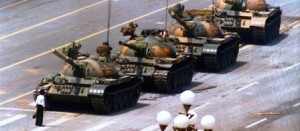 Who can forget the iconic image of that lone protestor standing down a tank? The military crackdown took lives.
Who can forget the iconic image of that lone protestor standing down a tank? The military crackdown took lives.
“When we offered [China’s leaders] love and peace,” observes Chai Ling, “they handed us death and massacre. None of us could believe it at first. How could I believe the People’s Liberation Army would kill its own people?”
“I grew up with them. They were uncles and aunties to me. We love them and they love us. … I raised my head to the sky and asked in silence, ‘Why? Why? Why? Why do they have to kill us for wanting to have a dialogue?’”
Stealthy Escape
High on Communist leaders’ most-wanted list, Chai Ling escaped to Hong Kong in a wooden crate. Her planned eight-hour journey became four days of dark isolation. She eventually traveled to the United States.
She married, had a family, built a successful software company, and donated funds for Tiananmen victims in China. Upset with her activism, Chinese authorities threatened her and her family. Over time, telephone eavesdropping, a hacked computer and mysterious deaths of Tiananmen dissidents brought her confusion and panic.
Unexplainable Peace
Then a friend gave Chai a film based on the biblical Gospel of John. John records Jesus as saying, “I have told you these things, so that in me you may have peace. In this world you will have trouble. But take heart! I have overcome the world.” (John 16:33) “Each time I watched the movie,” she recalls, “and heard the words of Christ, it brought an unexplainable sense of peace and calm into my burning heart.”
At a congressional hearing about China’s forced abortion practice, a victim said finding faith in God had sustained her. That woman’s story would influence Chai Ling’s personal and professional passions.
One afternoon in 2009, Chai knelt in her office and said a simple prayer: “Dear Lord, Jesus Christ, I now accept you as my Savior and my only God. Please forgive all my sins, known or unknown, please come into my heart and guide my life.” Expecting fireworks, instead she experienced “an amazing sense of peace.”
All Girls Allowed
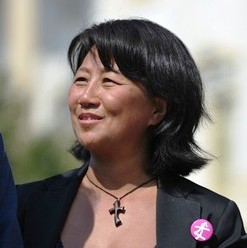 As her faith grew, Chai found a strong desire to present God’s love to China’s leaders and nation. She found a new revolutionary cause, rescuing victims of China’s One-Child Policy and bringing dignity and respect to China’s women. She founded a nonprofit, All Girls Allowed, to help counter cultural preferences for male children that lead to abandoned female babies and aborted female fetuses.
As her faith grew, Chai found a strong desire to present God’s love to China’s leaders and nation. She found a new revolutionary cause, rescuing victims of China’s One-Child Policy and bringing dignity and respect to China’s women. She founded a nonprofit, All Girls Allowed, to help counter cultural preferences for male children that lead to abandoned female babies and aborted female fetuses.
Emphases include “ending gendercide, educating abandoned girls, rescuing trafficked children, defending mothers,” and celebrating “the work of God in bringing life, value and dignity to girls and mothers.” Her 2011 book, A Heart for Freedom, relates her journey and mission.
Definitely a revolutionary worth watching.
---------
Rusty Wright is an author and lecturer who has spoken on six continents. He holds Bachelor of Science (psychology) and Master of Theology degrees from Duke and Oxford universities, respectively. www.RustyWright.com
Ephesians 4:26-27 Step Away Satan!
The fight between good and evil—it is a common theme in books and movies, especially older movies, but there is no question that it is also a part of our daily life on this Earth. I Peter 5:8 warns us to be sober and alert. The devil is looking for someone to devour, to win over to his side, so we must be constantly aware and work to avoid being ensnared by him. Ephesians 4:27 instructs us not to give the devil a foothold, an opportunity. How can we do that? The whole message of Ephesians 4 is that we need to be transformed from our old selves to our new selves through the power of the Holy Spirit. In Ephesians 4:1-3, Paul encourages us to live with humility, gentleness, patience and love in order to maintain peace and unity in the Spirit. In Ephesians 4:22-24 we are instructed to put our old ways behind us and to start living as the person who was created in God’s image, striving to be like Him by knowing His truth. One specific way to do this is to follow the guidance given in Ephesians 4:26: Be angry and do not sin.
Anger is an emotion, a gift given by God, and it is impossible to avoid becoming angry. Sin, however, is an act of the will or a lack of self-control. We choose how we will act when we are angry, either consciously or by failing to exercise self-discipline. Some Bible scholars state that because the verb in the original language is in the imperative form, we are commanded to be angry, and they discuss the value of righteous anger. God gets angry at sin, and so should we. Of course, God is sinless and we are not, so we are in much bigger danger of doing the wrong thing with our anger. Other scholars say that yes, it is the imperative form, but it is a permissive imperative. In other words, go ahead and be angry if you must, but be careful what you do with it. Whichever interpretation you believe to be true, the rest of the sentence is clear: do not sin. Make sure that you are controlling your emotions rather than allowing your emotions to control you.
The second half of Ephesians 4:26 should be taken symbolically rather than literally. It doesn’t mean that if you get angry in the morning you have a longer time to fume and stew than someone who didn’t get angry until later in the day. It means that you should resolve the disputes between you as soon as possible, and you should do it in the light of day. Darkness symbolizes deceit while daylight symbolizes truth. Work out your differences with pure motives. Forgive each other as we talked about last week. If we can control our anger and keep from sinning in the midst of this intense emotion, we will succeed in keeping unity and peace with our brothers and sisters in Christ, and we will not give Satan a chance.
John 16:33 Tiananmen Leader’s Divine Cause
Today's post was written by Rusty Wright.
---------
 Chinese student Chai Ling helped lead the massive 1989 demonstrations in Tiananmen Square that drew the world’s praise and her government’s wrath. Twice nominated for a Nobel Peace Prize, today this Harvard MBA is a successful businesswoman who still risks persecution to bring reform to China. Her current activities might surprise you.
Chinese student Chai Ling helped lead the massive 1989 demonstrations in Tiananmen Square that drew the world’s praise and her government’s wrath. Twice nominated for a Nobel Peace Prize, today this Harvard MBA is a successful businesswoman who still risks persecution to bring reform to China. Her current activities might surprise you.
For weeks during spring 1989, global attention focused on massive protests in Beijing’s Tiananmen Square. Chai Ling says the protests were “for a better, freer, and more loving China. …We wanted to know the truth about our country, our lives, and our beliefs.”
Love, Hope, Dreams of Freedom
She recalls that “the whole country, and the whole world [were] touched by that energy of love, hope and…glorious dreams that we could be free. Free from hatred…violence…separation… fear.”
“Even the thieves in Beijing called a strike,” she notes, “and stopped stealing to support the movement.”
Government leaders reacted differently.
Tank Standoff
 Who can forget the iconic image of that lone protestor standing down a tank? The military crackdown took lives.
Who can forget the iconic image of that lone protestor standing down a tank? The military crackdown took lives.
“When we offered [China’s leaders] love and peace,” observes Chai Ling, “they handed us death and massacre. None of us could believe it at first. How could I believe the People’s Liberation Army would kill its own people?”
“I grew up with them. They were uncles and aunties to me. We love them and they love us. … I raised my head to the sky and asked in silence, ‘Why? Why? Why? Why do they have to kill us for wanting to have a dialogue?’”
Stealthy Escape
High on Communist leaders’ most-wanted list, Chai Ling escaped to Hong Kong in a wooden crate. Her planned eight-hour journey became four days of dark isolation. She eventually traveled to the United States.
She married, had a family, built a successful software company, and donated funds for Tiananmen victims in China. Upset with her activism, Chinese authorities threatened her and her family. Over time, telephone eavesdropping, a hacked computer and mysterious deaths of Tiananmen dissidents brought her confusion and panic.
Unexplainable Peace
Then a friend gave Chai a film based on the biblical Gospel of John. John records Jesus as saying, “I have told you these things, so that in me you may have peace. In this world you will have trouble. But take heart! I have overcome the world.” (John 16:33) “Each time I watched the movie,” she recalls, “and heard the words of Christ, it brought an unexplainable sense of peace and calm into my burning heart.”
At a congressional hearing about China’s forced abortion practice, a victim said finding faith in God had sustained her. That woman’s story would influence Chai Ling’s personal and professional passions.
One afternoon in 2009, Chai knelt in her office and said a simple prayer: “Dear Lord, Jesus Christ, I now accept you as my Savior and my only God. Please forgive all my sins, known or unknown, please come into my heart and guide my life.” Expecting fireworks, instead she experienced “an amazing sense of peace.”
All Girls Allowed
 As her faith grew, Chai found a strong desire to present God’s love to China’s leaders and nation. She found a new revolutionary cause, rescuing victims of China’s One-Child Policy and bringing dignity and respect to China’s women. She founded a nonprofit, All Girls Allowed, to help counter cultural preferences for male children that lead to abandoned female babies and aborted female fetuses.
As her faith grew, Chai found a strong desire to present God’s love to China’s leaders and nation. She found a new revolutionary cause, rescuing victims of China’s One-Child Policy and bringing dignity and respect to China’s women. She founded a nonprofit, All Girls Allowed, to help counter cultural preferences for male children that lead to abandoned female babies and aborted female fetuses.
Emphases include “ending gendercide, educating abandoned girls, rescuing trafficked children, defending mothers,” and celebrating “the work of God in bringing life, value and dignity to girls and mothers.” Her 2011 book, A Heart for Freedom, relates her journey and mission.
Definitely a revolutionary worth watching.
---------
Rusty Wright is an author and lecturer who has spoken on six continents. He holds Bachelor of Science (psychology) and Master of Theology degrees from Duke and Oxford universities, respectively. www.RustyWright.com
Isaiah 26:3 Peace
Just a week ago, we were sharing New Year’s blessings with all our friends and family. I was wishing them happiness, peace, prosperity and good health. “May this be your best year ever,” I would say. “I wish you all the best.” I was optimistic for good things to happen, but the truth of the matter is that nothing much changes just because we turn over a new page on the calendar. We still face the same rebellious children, the health scares, the unhappy marriages, the financial difficulties, the unexpected tragedies. It’s just that now we are facing them when we had our expectations set for something so much higher, just because the year got a new number. Don’t get me wrong, I’m all for being optimistic, but saying “Happy New Year” doesn’t take all our troubles away.
Many years ago, when I was in my first year of university, I learned a new song, well new to me anyway. One of the verses said, “Thou wilt keep him in perfect peace whose mind is stayed on Thee.” This comes from the King James Version of Isaiah 26:3 which in its entirety says, “Thou wilt keep him in perfect peace, whose mind is stayed on thee, because he trusteth in thee.” In more contemporary English that might be, “You will give perfect peace to those who stay focused on you because they trust in you.” What a great promise that is!
This verse doesn’t mean that we will be exempt from all trials or heartaches, for we know that in this world we will have trouble. (John 16:33) The Apostle Paul knew what it was like to have trouble, (II Corinthians 11:23-27) but based on Isaiah 26:3, he wrote the very practical advice found in Philippians 4:6-7. Pray and give thanks. We will face situations that seem unbearable to us, but if we focus on God, bring all our cares to Him in prayer and thank Him for His many blessings to us, He will grant us a peace that defies explanation, peace that is not like the world gives (John 14:27), peace that will protect our hearts and minds.
John 14:27 Peace
We live in a turbulent world. We never know what is going to happen to us next. It could be a natural disaster like a tornado or a flood, a house fire, a car accident, a sudden death in the family or a rebellious child who takes our focus away from what we would rather be doing. Somehow things never seem to go according to our plans. Thankfully, we don’t have to rely on our circumstances to find peace.
The word ‘peace’ was a common Hebrew greeting; it was said as we would say ‘good-bye’. That is why in John 14:27, Jesus emphasized the word ‘my’ when He was saying good-bye to His disciples. He was about to leave the earth and return to His Father. Rather than just saying the word ‘peace’, He said ‘my peace I give to you’. He clarified that He wasn’t giving peace the way that the world does. His peace was different, all-sufficient, ever-lasting. His peace would ease their sorrow at His departure, and bring them courage to continue without His earthly presence.
Jesus had already given the disciples an example of His peace when they were out in a boat on the stormy lake. (Luke 8:22-25) Jesus had been asleep in the boat when the storm came up, and the disciples were afraid. Jesus rebuked the storm, and then addressed the disciples, “Where is your faith?” That is the key to peace: faith. If we completely trust God to take care of us in every situation, if we believe His promises that He wants the best for us, (Jeremiah 29:11, Matthew 7:11) if we know that somehow everything will work out for our good because we are called according to His purpose, (Romans 8:28) we will have peace.
